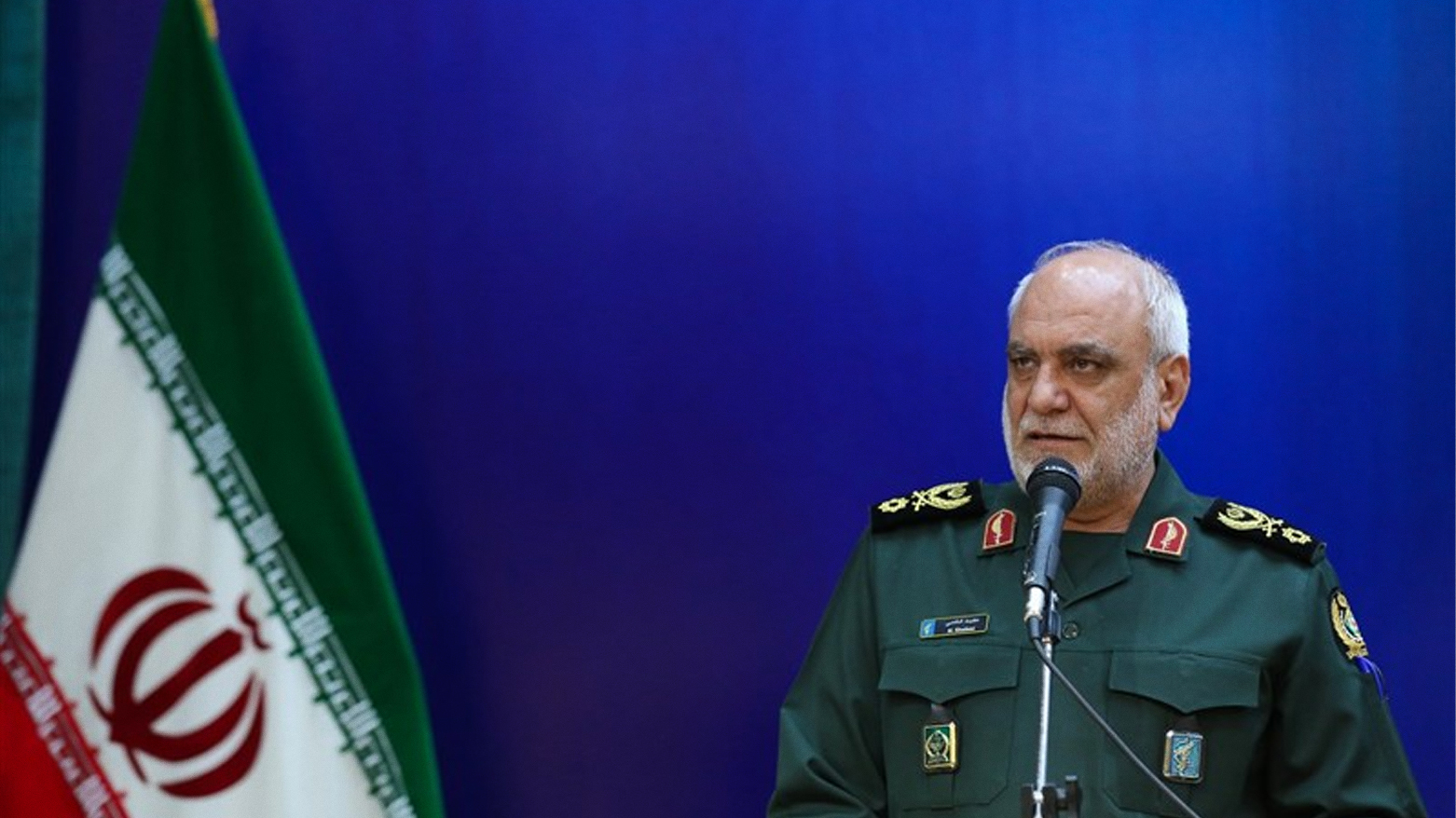IRGC Intel Chief: Europe Will Be 'Main Losers' If Sanctions Snap Back
"If the Europeans decide to take such actions [snapback mechanism], we have countermeasures that we can effectively utilize, and they will be the main losers in this affair," Khademi stated, as quoted by IRIB News Agency.

ERBIL (Kurdistan 24) – In a stark warning to European powers, the head of Iran's Islamic Revolutionary Guard Corps (IRGC) Intelligence Organization declared that Tehran has prepared "countermeasures" should UN sanctions be reinstated, a move he claimed would make European nations the "main losers." The comments, reported by the IRIB News Agency, come amid a sharp escalation in tensions over Iran's nuclear program and in the wake of a recent, devastating conflict with Israel.
General Majid Khademi, the IRGC intelligence chief, delivered the remarks to reporters on Sunday during a memorial ceremony in Tehran, according to the state-affiliated IRIB. Addressing the threat by Germany, Britain, and France—collectively known as the E3—to activate the "snapback mechanism" of the 2015 nuclear deal, Khademi projected a message of strength and readiness.
"If the Europeans decide to take such actions, we have countermeasures that we can effectively utilize, and they will be the main losers in this affair," Khademi stated, as quoted by IRIB News Agency.
His warning lands in a highly volatile diplomatic environment. Tense nuclear talks held in Istanbul on Friday between Iran and the E3 ended with Iran demanding sanctions be lifted while European diplomats pushed for "clear gestures" on limiting uranium enrichment and resuming cooperation with the International Atomic Energy Agency (IAEA).
The E3 has threatened to trigger the snapback mechanism, which would reinstate a host of international sanctions against Iran, if a diplomatic solution is not found. The mechanism is a provision within the now-moribund 2015 nuclear accord, from which the United States unilaterally withdrew in 2018.
Khademi's comments also referenced the recent conflict that saw Israel and later the United States launch strikes against Iranian military and nuclear sites. He framed the outcome as a victory for Iranian resilience.
According to the IRIB report, Khademi highlighted the role of "national cohesion" in the country's security. "The enemy assumed that in the wake of an attack on Iran, our national cohesion would be compromised," he said. "However, the people, with their steadfastness and cohesion, and the combatants of Islam, with their power, have shown that they can put the enemy in its place, and it was the enemy that requested a ceasefire."
The recent war derailed previous nuclear negotiations and prompted Tehran to suspend cooperation with the UN's nuclear watchdog, accusing the agency of bias. In response to the conflict and years of sanctions, Iran has advanced its nuclear activities significantly, enriching uranium to 60% purity—a level close to weapons-grade and far beyond the 3.67% limit set by the 2015 deal.
Despite the external pressures and recent conflict, the IRGC intelligence chief painted a picture of domestic stability and military preparedness. "Currently, the country is in a very good security situation," Khademi asserted, according to IRIB News Agency. "The people possess a high level of awareness and vigilance, and the armed forces are in a state of full readiness."
While Iranian diplomats have stated that consultations with European powers will continue, Tehran has warned that reimposing sanctions would be "completely illegal" and could risk Iran's withdrawal from the global nuclear non-proliferation treaty, further escalating the regional crisis.